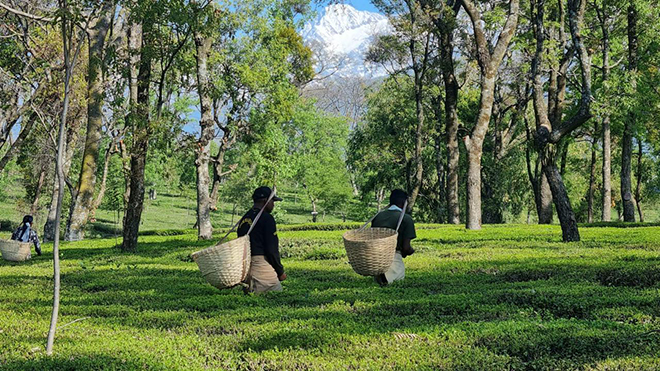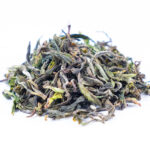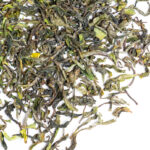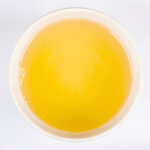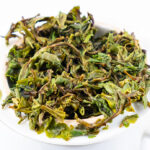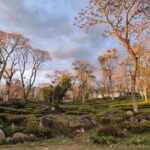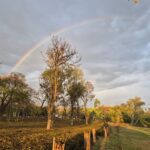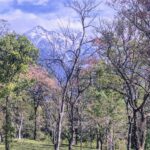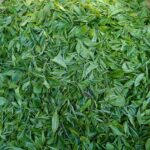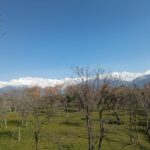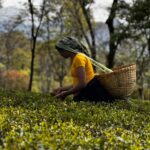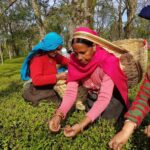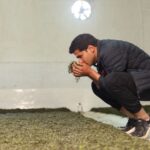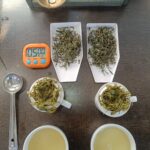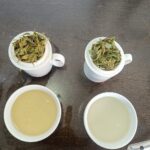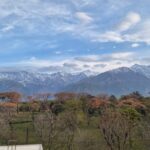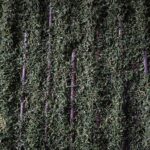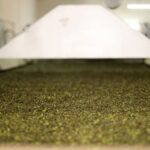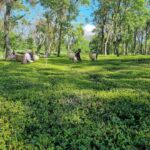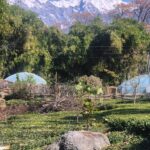Wah Tea Estate is a tea garden spread over 213 hectares in the picturesque Kangra region of Himachal Pradesh, North India, at an altitude of around 1200m. It is one of the largest and most important plantations in this not so well known tea region.
History of the garden
The garden was established as early as 1857 by British planters who brought Chinese-type tea trees to the area, which took permanent root here. Wah Tea is thus one of the few places in India where tea is still grown exclusively from these indigenous shrubs.
The estate took its name from the town of Wah in present-day Pakistan, where its later owner, Sir Sikander Hayat-Khan, came from. The name “Wah” is used in Urdu to express awe – and that is exactly what locals say anyone who enters this place surrounded by mountain ranges, pine forests and crystal clear air with the scent of pine trees believed to have healing powers will experience.
Under Indian care
Since 1953, the garden has been in the hands of an Indian family business that owns the garden to this day. Now the tea is grown and processed by the fourth generation of tea masters. Today’s team, led by Deepak Prakash and his son, continues the traditional way of growing and processing tea – completely pesticide-free, hand-picking and traditional processing on historic machines, some of which date back to the early 19th century.
Wah Tea is more than just a tea garden – it is a place where history, landscape beauty and craftsmanship come together. In addition to tea production, a small eco-friendly accommodation, The Lodge at Wah, has been created here, allowing visitors to experience the magic of the plantation for themselves.
Spring Wisdom
We imported a very well processed tea from the first flush of Wah Tea. It has a beautifully crafted, slightly oxidized, regularly rolled and completely unbroken leaves consisting of a top bud and two young leaves. The bright, golden green infusion has a delicate, sweet floral flavour with a pleasant fruity component, floral nectar and summer herbs in the aftertaste.

